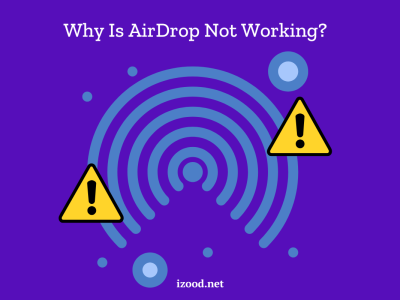In the ever-evolving world of digital marketing, search engine optimization (SEO) remains a critical aspect of driving organic traffic to websites. As search engines become more intelligent, they focus not only on keywords but also on understanding the context and entities behind the content.
Understanding Entities In SEO
In the context of SEO, entities refer to people, places, organizations, events, products, and other distinct elements that exist in the real world. Search engines have evolved to understand and categorize these entities, allowing them to provide more relevant search results to users. To optimize for commodities, it is essential to comprehend how search engines identify and interpret them.
- Entity Identification: Search engines use various techniques, including natural language processing (NLP) and machine learning algorithms, to extract and categorize entities from web pages. These algorithms analyze content to identify and establish connections between different entities.
- Entity Attributes: Entities possess specific attributes that define their characteristics, such as names, descriptions, locations, dates, and relationships with other entities. Using these attributes effectively in web content can help search engines understand and index the entities accurately.

Also Read: 6 Ways to do Plenty of Fish Search Without Registering
Optimizing Content For Entity SEO
Experts from seostrategy.com state that to leverage entity SEO and improve search engine rankings, it is crucial to optimize website content by following these best practices:
- Keyword Research: Conduct thorough keyword research to identify the most relevant keywords related to your target entities. Use tools like Google Keyword Planner and SEMrush to uncover popular search terms that align with your entity-focused content strategy.
- Content Creation: Develop high-quality, informative, and engaging content around entities. Ensure that your content incorporates relevant attributes and includes structured data markup, such as Schema.org, to provide search engines with explicit information about the entities mentioned.
- On-Page Optimization: Optimize on-page elements, including page titles, meta descriptions, headings, and URL structures, by including entity-related keywords. This helps search engines understand the context of your content and improves the chances of ranking higher in relevant searches.
- Internal Linking: Strategically interlink relevant pages within your website to create a network of related content. This helps search engines establish relationships between different entities and reinforces their relevance.
- Backlink Strategy: Develop a robust backlink strategy to earn authoritative and relevant links from reputable websites. Backlinks from trustworthy sources help search engines establish the credibility and importance of your entity-focused content.
Local Entity SEO
For businesses with a physical presence, local entity SEO plays a crucial role in attracting customers from specific geographic locations. Implement the following strategies to enhance local entity SEO:
- Google My Business: Create and optimize your Google My Business listing, ensuring accurate and up-to-date information about your business, such as name, address, phone number (NAP), and opening hours. Encourage customers to leave reviews, as they contribute to local search rankings.
- Local Citations: Build citations on authoritative local directories and review platforms to strengthen the visibility and credibility of your business. Consistent NAP information across these platforms is crucial for local search engine rankings.
- Location-Specific Keywords: Incorporate location-specific keywords in your website content and meta tags to target users searching for businesses in your area. This helps search engines connect your entity with local queries.
Monitoring And Measurement
To ensure the effectiveness of your entity’s SEO efforts, monitor and measure the following metrics:
- Search Engine Rankings: Track your website’s ranking positions for entity-related keywords to gauge your SEO performance. Use tools like Google Search Console and third-party SEO software to gather this data.
- Organic Traffic: Monitor the organic traffic driven to your website through entity-focused content. Analyze the sources, engagement metrics, and conversion rates to understand the impact of your SEO efforts.
- Local Visibility: For local entity SEO, track your business’s visibility in local search results and map listings. Monitor the impressions, clicks, and conversions from these sources to assess the success of your regional SEO strategy.
Using Wikipedia For Entity SEO
Using Wikipedia for entity SEO (Search Engine Optimization) can be beneficial for improving the online visibility and credibility of a particular entity, such as a brand, organization, or individual. Here are some steps you can take to utilize the above platform effectively for entity SEO:
- Determine Eligibility: Wikipedia has specific guidelines for creating and editing articles. Ensure that the entity meets the notability criteria established by it. The entity should have received significant coverage in reliable sources independent of the commodity itself.
- Conduct Thorough Research: Gather reliable and verifiable information about the entity before creating or editing a Wikipedia page. Look for credible sources, such as news articles, books, and scholarly publications that provide substantial coverage of the entity’s history, achievements, and impact.
- Please Create An Account: Register for a Wikipedia account, as it will provide you with additional editing features and the ability to communicate with other editors.
- Understand Wikipedia’s Policies: Familiarize yourself with Wikipedia’s guidelines, policies, and style manual. It is crucial to adhere to these guidelines to avoid having your edits removed or the page flagged for deletion.
- Edit Existing Articles: If the entity already has an article on Wikipedia, you can contribute by improving its content, ensuring accuracy, adding reliable references, and expanding the coverage. Make sure to provide citations for any information you add or edit.
- Create A New Article: If the entity doesn’t have an existing Wikipedia article, you can create one. However, it’s important to note that creating an article requires in-depth research, adherence to Wikipedia’s guidelines, and providing reliable sources to establish notability.
- Use Neutral Tone And Reliable Sources: Wikipedia requires a neutral point of view (NPOV) in all articles. Avoid using promotional language or biased content. Use reliable sources to support the information you provide. Wikipedia prefers high-quality sources such as books, academic journals, reputable news outlets, and established websites.
- Update And Maintain The Page: Keep the Wikipedia page up to date with the latest information about the entity. Monitor the carrier for any potential edits, and respond to questions or concerns from other Wikipedia editors.
- Engage With The Wikipedia Community: Participate in discussions on relevant talk pages and collaborate with other editors. Building relationships and demonstrating a commitment to Wikipedia’s collaborative ethos can help you navigate the editing process more effectively.
- Monitor And Manage The Page: Regularly check the Wikipedia page for edits, vandalism, or potential issues. Address any concerns promptly and maintain the page’s integrity. Set up alerts or use Wikipedia monitoring tools to receive notifications when changes occur.
Remember, Wikipedia’s primary goal is to provide unbiased and verifiable information, so it’s crucial to provide accurate and reliable content rather than using it purely for SEO purposes.

![How to Pause Location on Find My iPhone Without Them Knowing? [2024] 17 how to pause location on find my iphone](https://izood.net/wp-content/uploads/2024/10/How-to-Pause-Location-on-Find-My-iPhone-Without-Them-Knowing-400x300.png)


![How To Inspect Element on iPhone [4 Methods] 20 how to inspect element on iphone](https://izood.net/wp-content/uploads/2024/10/how-to-inspect-element-on-iphone-3-400x300.png)


